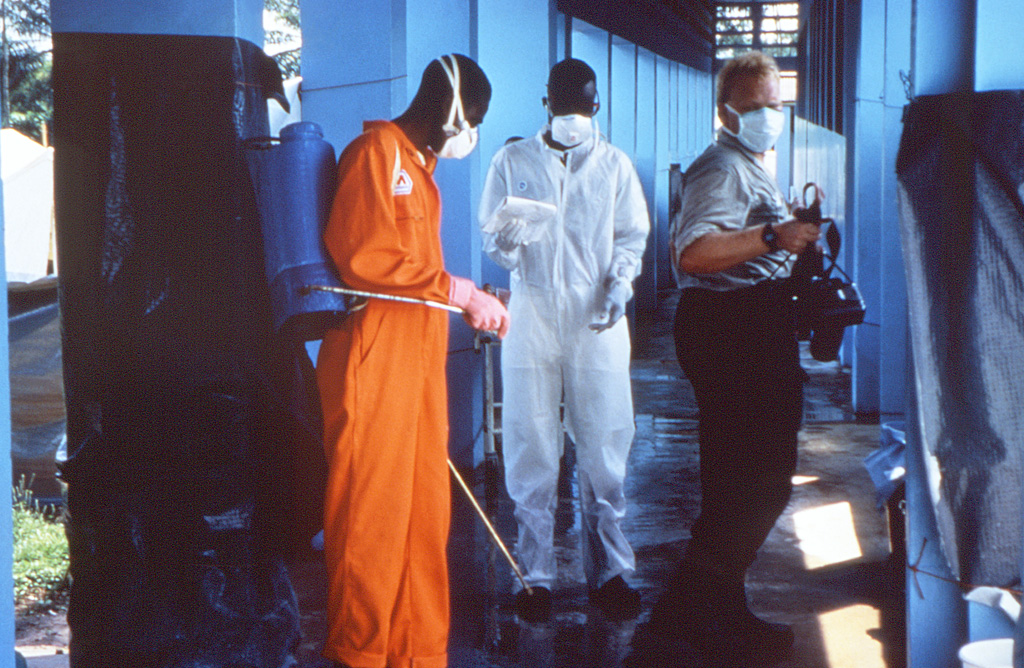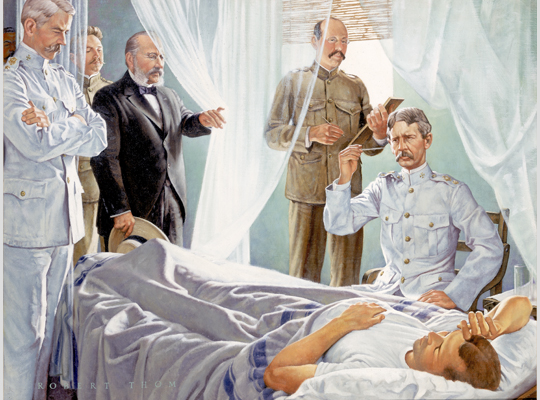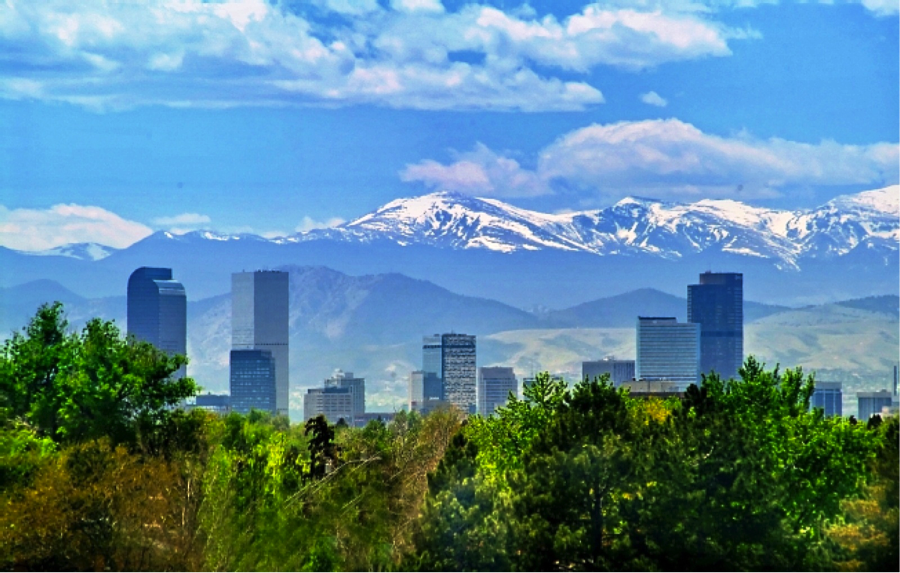Ebola has been the feared name on the lips of newscasters for over a month now, and people around the world are living in fear that the dreaded disease will spread farther than the current five World Health Organization-confirmed African countries (Liberia, Nigeria, Senegal, Guinea, and Sierra Leone) and into their own homes. Anyone who has turned on a news program in the past month can tell you how deadly this disease is, and how quickly it spreads from person to person and increasingly, state to state. What is lying under the surface, however, could be just as terrifying as the disease is today. This newest Ebola outbreak illustrates the political fragility of the region it is occupying and could potentially lead to the destruction of states. The political outcome of Ebola may be even more disastrous than the disease itself.
The first hint of Ebola-politics for Americans came from the newfound Western hysteria over the disease. Although WHO has stated that it is very unlikely that the disease will spread beyond West Africa, many American and Western European politicians have made dramatic claims about the danger of allowing Western nationals back home after visiting an Ebola-stricken country. U.S. Congressman Todd Rokita (R-IN) recently brought Ebola into the ongoing immigration policy debate by stating that Ebola was one of many reasons a stricter immigration policy is imperative in the United States. Divisive comments about the disease and government handling of it’s occurrence has already begun to strain relations between the governments of Western Europe and the United States to those of the struggling West African countries.
More worrisome for those in some West African countries, however, is the effect that the spread of Ebola will have on their already-shaky political structures. In Sierra Leone, for example, Ebola has created new riots and disturbances based on the perceived lack of government care for the many victims. The government lacks resources due to a recent civil war, but if they cannot come up with a way to better their image in terms of civilian healthcare and disease prevention, then the country may be looking at another violent conflict.
Ebola has brought about major political and social unrest in Liberia, one of the world’s poorest countries. Hundreds of people have flocked to local churches under the advice of reverends around the nation. Some high-profile ministers have asserted that the Ebola outbreak is God’s punishment for Liberian sins, particularly “homosexuality, drinking, adultery, and fornication.” Liberian President Ellen Johnson Sirleaf has even gone so far as to declare three days of praying and fasting in order to keep hope alive in her country.
The political repercussions in Liberia, the hardest-hit country, are also notable. Most recently, President Sirleaf has suspended constitutional individual rights, citing an official “state of emergency” created by Ebola. This is in an attempt to prevent travel between regions in hopes of containing the disease, but the already-skeptical public met the suspension of rights with much apprehension. While Sierra Leone struggles with how to care for its sick citizens, Liberia struggles with building enough trust to take any positive action. From the first government warnings of the disease, there were prevalent calls that the entire crisis was a creation by the Liberian government in order to get money from foreign powers and international organizations. Many victims will not go to government-sponsored hospitals unless they have absolutely no other option, preferring the substandard care of their local churches, which are also used as a gathering place for the praying and healthy Liberians and missionaries.
Distrust is even more prevalent in Guinea, the first country to suffer from this outbreak of Ebola in December of 2013. The fear of government conspiracy was so high, in fact, that villagers brutally murdered eight healthcare workers and Western journalists who they feared were contaminating healthy people under the guise of treating sick patients. Due to this horrifying belief about the workers from Doctors Without Borders and WHO, it is estimated that only about a third of Ebola cases in Guinea are reported to the government or to health-related NGOs.
Senegal and Nigeria have handled their Ebola outbreaks in a more organized and less politically tense manner, but they are also lucky enough to be (slightly) wealthier than their counterparts, have populaces with more trust in government, and a lower rate of diseased citizens. Though the Senegalese government did suspend travel rights during their time as an “at-risk” country, they did not suffer riots in the face of these new rules and both countries have generally been able to provide more care to their sick citizens than those in Sierra Leone and Liberia. Nigerian President Goodluck Jonathan has simply requested that citizens not shake hands. This does not mean that Senegalese and Nigerian government officials are immune from political worry over the epidemic, however. Senegalese President Macky Sall has used the fear of similar insurrection and political instability in the region to scare WHO and foreign donors into investing more money and effort to contain the disease and preserve the political and economic system in Senegal.
Ultimately, Ebola is a disease that has spread fear further than any viral antibodies could, and may leave a legacy of political turmoil long after doctors have eradicated the recent outbreak. If something is not done to protect current victims and to contain the virus where it has already spread, then governments may topple, economic systems ruined, and a social disaster may very well occur. This disease is terrifying to the individual who contracts it, but may infect the world political systems in ways we never knew were possible.



